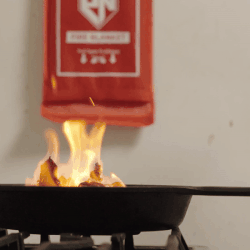May 18, 2025

Greetings!
If your credit score is dragging you down, you don’t have to just sit back and wait seven years for bad marks to fall off your report. Time helps, but action works faster.
The truth is, improving your credit score isn’t about doing everything right. It’s about doing a few key things consistently and knowing what actually matters to lenders.
Let’s break down the moves that make the biggest impact.
Be Well,
Anisa
Please add [*FROM*] to your address book or
visit here.
My Co-workers are calling me INSANE!
We are moving our warehouse and I have slashed prices on over 80 items.
Some are BELOW COST! - VISIT HERE to see the sale!
1. On-time payments are everything
The number one factor in your credit score is your payment history. It makes up 35% of your FICO score. So if you only do one thing, do this: never miss a due date. That includes:
• Credit cards
• Mortgage or rent
• Car loans
• Student loans
Set reminders or use auto-pay if needed. Whatever it takes to stay consistent.
2. Pay down high-interest credit cards first
Credit card debt doesn’t just cost you in interest. It can also drag down your score.
Focus on paying off the cards with the highest interest rates first. This lowers your overall risk and reduces the amount of debt reported to credit bureaus each month. The less debt you're carrying, the better your score will be.
3. Keep credit utilization below 30%
This one's crucial. Your credit utilization ratio is how much of your available credit you're actually using.
Here's the sweet spot:
• Keep it under 30% across all cards
• Keep it under 30% on each individual card
For example, if your card has a $1,000 limit, aim to carry no more than a $300 balance at any time. The lower, the better.
4. Don't ignore past-due bills, even old ones

It's tempting to forget about late payments from the past, but unpaid debts tend to follow you.
Even if paying them off doesn't immediately raise your score, lenders want to see that you eventually paid what you owed. That can make a big difference when applying for new credit.
Start with the most recent overdue accounts. Older debts tend to have less impact, especially if they're already a few years old.
Bonus Tip: Don't close old credit cards
It might feel responsible to shut down an account once it's paid off, but if it doesn't have an annual fee, keep it open.
Why? Because the length of your credit history plays a role in your score. The longer your accounts have been open, the better it looks.
In Closing...
Credit scores aren't permanent. They move, and often faster than you'd expect, when you take the right steps.
Focus on what really matters: on-time payments, responsible credit use, and smart repayment priorities.
You don't have to be perfect. Just consistent.
Featured Freebie: YouMail Block RoboCalls on you iPhone
Washington Post calls this the best Robocall blocker and it is free!
They do have a paid version but so far the free one has been very good for me. If you own an
iPhone or iPad you can download it for free here
Missed An Issue? Visit our archives loaded with past and new issues.
 Ever Wondered What a Fire Blanket Is? Click Here to Find Out!
Ever Wondered What a Fire Blanket Is? Click Here to Find Out!